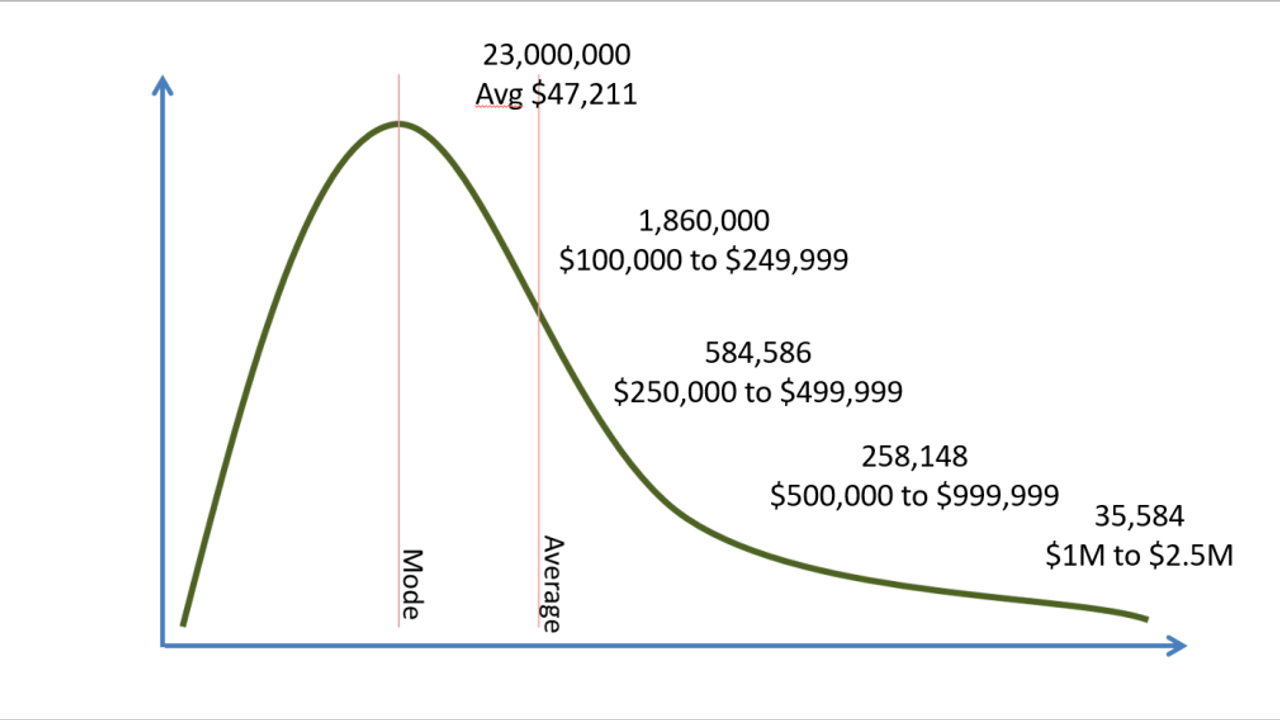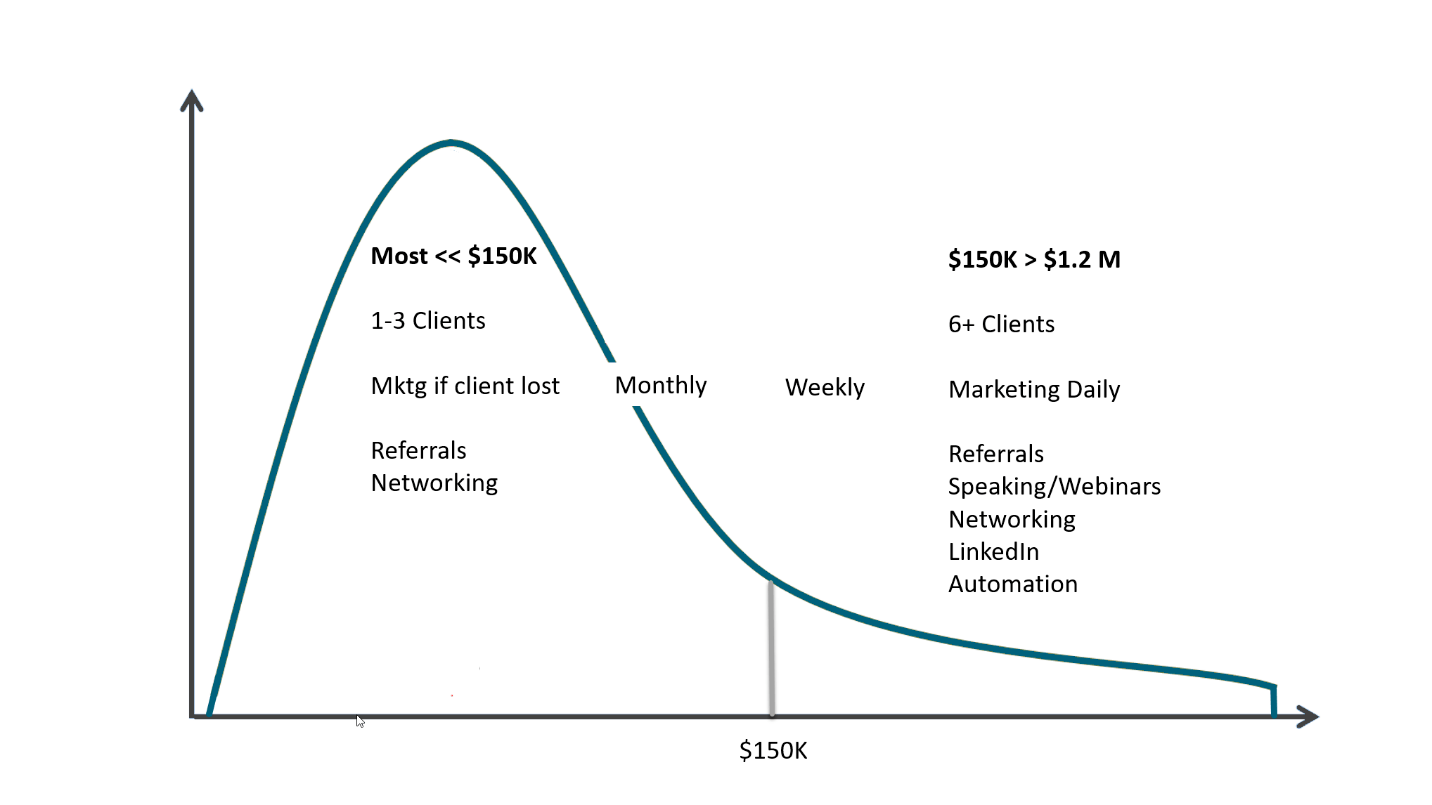Secrets of High-Earning Consultants
Jun 09, 2021
Where are you on the earnings curve for solo-professionals?
Can you imagine what a difference earning a high six- or seven-figure income would make to your life, your family’s life, and your children’s future?
Do you know what makes the difference between high earning and average earning solo-consultants?
A few things make a HUGE difference in consulting income.
US Census data shows that in 2015, the last completed census, the average self-employed person in the US earned $47,200. In that same year,
Earnings distribution for solo-professionals has the long-tail skew often seen in these types of studies. The long tail is because a few solo-professionals know and do what makes a difference. (As we’ll see in the next blog, this difference isn’t just in earning. It carries over into satisfaction and well-being.)
Research shows there are two sets of factors that separate high earners from average earners, their business structure and how they market.
The Business Processes That Separate High Earning Solo-Professionals from Average Earners
In Elaine Pofeldt’s ground-breaking research on high-earning self-employed people she discovered the Critical to Success factors were,
Pofeldt, E. (2018). “The Million-Dollar, One-Person Business”, Lorena Jones Books.
These critical factors of identifying a profitable niche, building a brand, testing your value offer, and filling your pipeline are covered in the first stages of The Ultimate Guide to Starting and Growing a Consulting Business.
Marketing Separates High Earners from Average Earners
A survey of solo-consultants conducted by Michael Zipursky showed a couple of significant differences between solo-consultants earning less than $150,000 per year and those earning more than $150,000 per year.
If we overlay these differences on the same chart it looks approximately like this,

Those solo-consultants earning less than $150,000 per year had only 1 to 3 clients per year, apparently marketing and looking for new clients only when a client was lost. Their marketing primarily depended on referrals and networking.
Consultants earning more than $150,000 per year had 6 or more clients per year and marketed DAILY. They also used a portfolio of marketing approaches to fill their prospect funnel. Their marketing portfolio included; referrals, speaking, networking, LinkedIn outreach, free seminars/webinars, and web/email automation.
This doesn't mean you should be doing all of these things. In my experience it is best to focus on three marketing channels that best fit your style and the niche. You want these three channels to create a flow from attracting leads to closing clients - that's part of what you learn in Consulting Mastery Seriestm courses and mentoring.
Learn More in the eBook on this Topic:
Calculating and Setting Consulting Fees